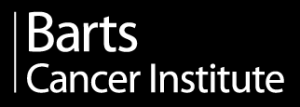March 20
2014
Biodesign Auditorium
727 E. Tyler St. Tempe
AZ 85287
Our concept of a stable genome is changing from one in which the DNA sequence is passed faithfully from generation to generation to another in which genomes are plastic and responsive to environmental changes. Growing evidence shows that environmental stresses induce mechanisms of genomic instability in bacteria, yeast, and human cells, generating occasional fitter mutants and potentially accelerating evolution and disease. The emerging molecular mechanisms of stress-inducible mutagenesis vary but share telling common components that underscore two common themes of the non-randomness of mutation: (1) regulation of mutagenesis in time by cellular stress responses, which promote mutations specifically when cells are poorly adapted to their environments—i.e., when they are stressed; (2) restriction of mutagenesis in genomic space causing mutation hotspots, clusters and showers. Mutational hot-spotting may target specific genomic regions and allow local concerted evolution (adaptive evolution requiring multiple mutations). This talk will focus on a molecular mechanism of stress-induced mutation in E. coli and note its parallels in other organisms including human cancer. The mechanism is a stress-response-orchestrated switch to error-prone repair of DNA breaks. We consider its regulation by stress responses, demonstrate its formation of mutation hotspots near DNA breaks, and report our discovery of a large gene network that underlies mutagenic repair of DNA breaks, more than half of which functions in stress sensing and signaling. The data show the importance of stress-response control and also that biological functions of large fractions of networks can be understood when molecular mechanisms are considered and functional studies employed. Regulation of mutagenesis in time and genomic space is widespread in many organisms and circumstances. Such mechanisms may fuel biological evolution and genetic disease, including pathogen-host adaptation and drug resistance and tumor and other disease progression and resistance mechanisms, much of which occurs under stress, driven by mutations.
Dr. Rosenberg’s research interests include Genome Instability in Evolution, Antibiotic Resistance, Cancer, Stress-Induced Mutagenesis, Antibiotic-Resistance Mutation, Spontaneous DNA Damage and From Bacteria to Humans: Genomic-Caretaker Proteins and Cancer.



